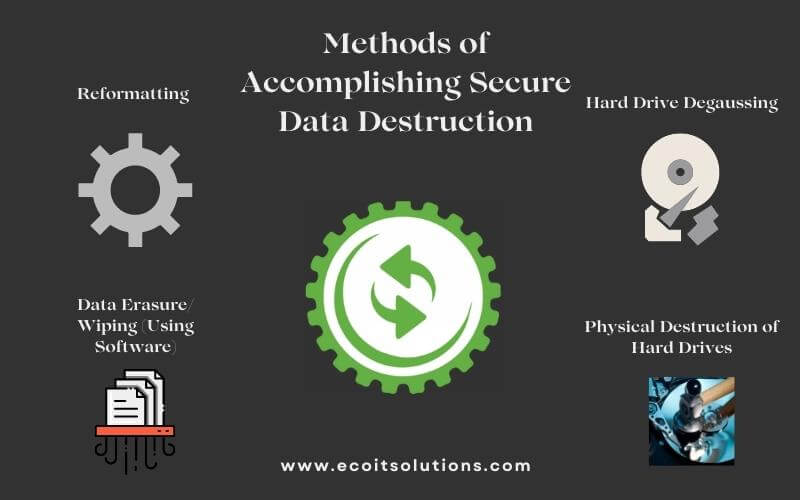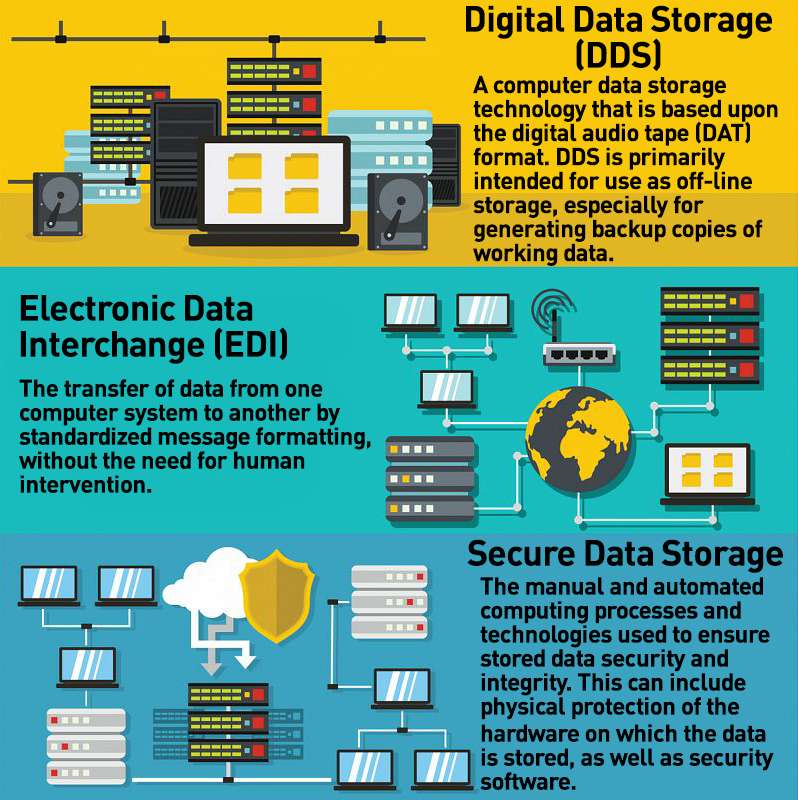How Robust Data Destruction Improves Your Overall Cyber Security Actions
How Robust Data Destruction Improves Your Overall Cyber Security Actions
Blog Article
The Important Nature of Data Devastation in Upholding Computer Security Providers and Protecting Against Unauthorized Gain Access To
In a period where data violations and identity theft are progressively common, the significance of effective data devastation can not be overemphasized. Organizations should acknowledge that the failure to correctly deal with sensitive info postures not only lawful and economic threats however likewise a possible disintegration of client trust fund. Various methods, from data wiping to physical damage, function as vital safeguards versus unapproved access. Nevertheless, recognizing the ramifications of information destruction techniques and conformity with regulations elevates crucial concerns about the adequacy of current approaches and their lasting stability when faced with developing risks.
Value of Data Damage
In a progressively digital world, the value of information devastation can not be overemphasized. As organizations collect huge quantities of delicate information, the prospective effects of failing to properly get rid of and handle of that data end up being progressively extreme. Data breaches, identity burglary, and business reconnaissance posture substantial risks, highlighting the need of reliable data devastation techniques.

Additionally, as innovation progresses, so too do the methods through which destructive actors seek to manipulate sensitive details. Organizations should remain attentive and aggressive in their data destruction methods to protect against these advancing threats. By prioritizing information destruction, companies not only shield their possessions but also foster depend on amongst customers and stakeholders, showing a commitment to accountable data administration and protection practices.
Methods of Effective Information Damage
To ensure the irreversible and complete destruction of delicate data, companies can employ a selection of efficient approaches tailored to their specific requirements. One of one of the most usual methods is information wiping, which entails making use of specialized software application to overwrite existing information numerous times, making healing virtually impossible. This is specifically valuable for solid-state drives and hard drives, where typical removal methods are inadequate.
One more effective strategy is degaussing, which makes use of strong magnetic areas to disrupt the magnetic domain names on storage space media, rendering the data irretrievable. This method is especially fit for magnetic storage devices, such as disk drive and tough disks.
Physical damage is additionally a sensible alternative, entailing the shredding, squashing, or incineration of storage tools. This technique guarantees that data can not be recuperated, making it perfect for companies managing highly sensitive information.
/prod01/channel_3/media/tcd/itservices/images/Untitled-design-(26).png)
Compliance With Information Defense Laws
Organizations have to not just concentrate on efficient data damage methods yet additionally make sure conformity with information protection laws that control just how delicate information is my latest blog post handled and thrown away. Following these regulations is vital for safeguarding individual data and keeping consumer trust fund. Rules such as the General Information Defense Regulation (GDPR) in the European Union and the Medical Insurance Portability and Responsibility Act (HIPAA) in the USA enforce strict guidelines on information monitoring, that include demands for the secure disposal of sensitive details.
To achieve conformity, companies have to apply detailed data damage plans that line up with these legal structures. This consists of recognizing information that calls for destruction, establishing methods for secure methodsâEUR" such as shredding physical media or utilizing software that fulfills sector criteria for data wipingâEUR" and keeping in-depth records of damage tasks. Regular audits must be carried out to make sure adherence to these plans and to recognize any type of possible areas for enhancement.
Failure to adhere to data defense laws can result in significant lawful ramifications, including significant fines and damage to a company's credibility. Therefore, integrating conformity into data destruction methods is not only a legal responsibility but likewise an essential element of a durable details safety technique.
Consequences of Poor Data Handling
Poor data handling can cause serious repercussions that extend past instant functional problems. Organizations might encounter significant monetary losses because of information breaches, which frequently result in pricey remediation efforts, legal charges, and regulatory penalties. These financial effects can prevent and stress resources growth, inevitably influencing an organization's bottom line.
Additionally, poor information handling can badly damage an organization's track record. Partners, consumers, and stakeholders may lose rely on an entity that fails to protect delicate details, leading to reduced client commitment and possible loss of business chances. This erosion of depend on can take years to restore, if it can be restored at all.
Additionally, organizations might encounter lawful ramifications occurring from non-compliance with data protection laws. Such infractions might lead to investigations and penalties, intensifying the monetary concern and more staining the company's image.
In the realm of cybersecurity, insufficient information administration methods can create susceptabilities that make systems extra prone to unapproved access and cyberattacks. Inevitably, these consequences highlight the essential value of applying durable data handling treatments to secure delicate information and maintain business stability.
Best Practices for Secure Information Disposal


Firstly, information should be identified according to its level of sensitivity. Delicate info calls for much more rigorous disposal approaches, such as shredding physical papers and utilizing sophisticated software for electronic information wiping. Utilizing qualified information damage services makes sure this content compliance with sector guidelines and requirements.
Second of all, companies ought to implement an information disposal policy that mandates routine audits. This plan ought to detail the treatments for data retention and devastation, guaranteeing that obsolete information is dealt with quickly and firmly. Educating staff members on these methods is important to fostering a culture of safety and security understanding.
Last but not least, preserving thorough records of disposed information enhances accountability and supplies a clear audit trail. This documents needs to include the sort of information destroyed, the approach made use of, and the day of disposal.
Verdict
Embracing robust techniques such as information wiping, degaussing, and physical damage, along with conformity recommended you read with regulations like GDPR and HIPAA, is important for guarding delicate details. Disregarding appropriate information disposal techniques can lead to serious consequences, consisting of information breaches and legal effects.
In an era where data violations and identification burglary are increasingly widespread, the importance of reliable information damage can not be overemphasized. data destruction. Data violations, identity theft, and company espionage present significant hazards, highlighting the requirement of efficient data devastation practices
Compliance with laws such as GDPR and HIPAA mandates that companies execute stringent information protection measures, including the safe and secure damage of information at the end of its lifecycle.
By prioritizing data devastation, companies not just shield their assets yet also foster depend on among stakeholders and clients, demonstrating a dedication to responsible information management and security techniques.
Organizations have to not just concentrate on reliable information destruction approaches however additionally guarantee conformity with data protection laws that control how delicate details is managed and disposed of.
Report this page